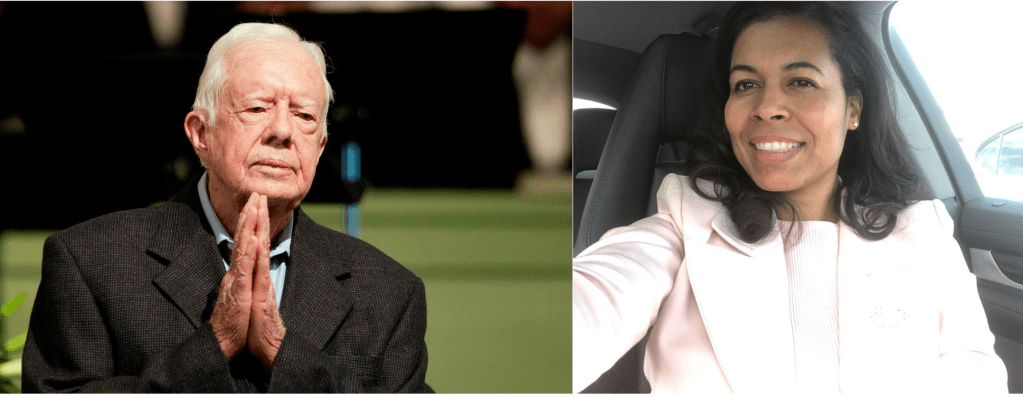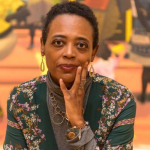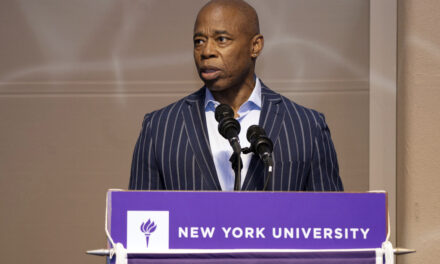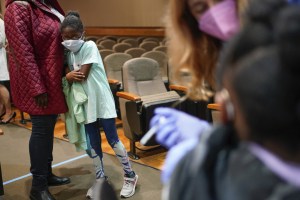By Dana M. Peck, AFRO Digital Solutions Director
This Presidents Day, the AFRO reflects on the legacy left behind by President Jimmy Carter. Known for his humanitarian efforts, Carter touched countless lives– including some right here at the AFRO.

Dana M. Peck, Health Programs Senior Business Manager, 1997-2003; Consultant, 2008-2020
In 1985, my mom bought me a special book that helped guide my career path: “Keeping Faith” by President Jimmy Carter. After completing that book, I was on a mission to get to Atlanta to work with President Carter. I arrived in Atlanta in 1995 to work with the Atlanta Committee for the Olympic Games, and after that assignment ended, I applied for several positions at The Carter Center. I was hired in November 1996 to manage the administrative operations of the center’s health programs, which focused on providing sustainable health education to eradicate and eliminate debilitating diseases in sub-Saharan Africa and Latin America. It was a dream job.
I worked alongside some of the most brilliant and passionate minds, guided by the tremendous leadership of President Carter.

I later worked as a consultant from 2008 to 2020.
A highlight of my time at The Carter Center was traveling with him and a small team to monitor elections in Liberia. I witnessed firsthand his unwavering commitment to democracy, public health and humanity. His legacy lives on in every life touched and every injustice challenged.
Many people know about President Jimmy Carter’s work with Habitat for Humanity, his spiritual leadership at his Plains, Ga., church and his presidency. His dedication to the health of people in Africa and Latin America, and the team assembled at the Atlanta headquarters and local leaders—mostly people of color—is less well known. The thousands of people he encouraged and secured financial and technical assistance for extended his legacy in these parts of the world. His health programs strengthened the capacity of the health workers in all of the center’s field offices. The directors of each health program were former CDC leaders known for their expertise in eradicating one of the world’s oldest infectious diseases—smallpox. They were world-renowned “disease cowboys” whose professionalism and dedication inspired me to pursue a degree in public health. I eagerly attended weekly staff meetings to hear their updates, and the majority of them were men of color who supported field offices led by local public health professionals.

What follows are reflections from a few of those men about their important work at The Carter Center.
I’m grateful for the life and legacy of President Jimmy Carter, a leader who shaped my career and inspired my life, and for the talented men and women who worked alongside him.
Dr. Hopkins’ reflections on working with President Carter:

He was always gracious and supportive, very precise and meticulous, rarely impatient—mostly when he thought we weren’t asking him for help enough. He and Mrs. Carter were extremely important in engaging political and medical leaders, donors and media in the Guinea worm eradication campaign. He traveled to Africa for the campaign on average once a year from 1988 to 2010, in addition to related trips in the U.S. and Europe. He relished the African trips and also wrote scores of letters and made dozens of telephone calls to heads of state in endemic countries.
I have especially fond memories of chatting about many subjects when it was just him and me (plus the U.S. Secret Service and driver) on a two-plus-hour journey to a town in South Sudan on our last trip to Africa together in 2010. Also, when I surprised him once at a book signing in Chicago. He surprised me with a bear hug when I returned to The Carter Center for the first time about a year after my heart attack. I miss his broad smile.
Wyatt J. Ware, Staff Accountant
I joined The Carter Center in July 1997 as a staff accountant for the Global 2000 program. I was employed at the center for almost five years. Initially, I believed the center and President Carter were known primarily for Habitat for Humanity. When I began working there, I realized it did so much more.

The Carter Center monitored elections in foreign countries and worked to eliminate diseases, including river blindness, Guinea worm, and trachoma. As an accountant who was later promoted to senior staff accountant, I prepared financial grant reports to help secure funding for the river blindness and trachoma programs with Merck Pharmaceuticals.
My impression of President Jimmy Carter was that he was a no-nonsense individual. He and Mrs. Carter attended the center’s quarterly board meetings, which always started on time. He was also our keynote speaker when I was president of The Carter Center’s Toastmasters chapter at our official chartering ceremony in April 2002. That day, he shared that he was going to speak in Cuba at the request of Fidel Castro.
I was honored and proud to have worked for The Carter Center. I will always cherish the memory of meeting President and Mrs. Carter and witnessing their impact firsthand.
Don Denard, associate director, finance, health programs
I joined The Carter Center on Feb. 13, 2004, and worked full-time for over 18 years until Aug. 30, 2022. I continue to work part-time in support of the program finance team.

My experience with President Carter consisted mainly of annual budget meetings from 2004 to about 2016. He was known for reading everything in advance, and those presenting budgets had to come prepared—not just with financial details but with an understanding of strategy, management, and political challenges.Don Denard still fondly remembers his time as associate director, finance, health programs at The Carter Center.
I recall one meeting where a program director mentioned difficulties with a partner organization. President Carter immediately offered to call its leader to help. When the director declined, Carter, taken aback, told the team never to complain about the partner again if they weren’t willing to take action.
I traveled with him to Nigeria to celebrate the eradication of Guinea worm disease. During that trip, he hosted a luncheon for Atlanta staff, personally asking each of us about our backgrounds. On the return flight, he moved through the cabin, shaking hands and speaking with every passenger. One man told him, “I didn’t vote for you when you ran against Reagan, but I respect the work you’re doing and wish I had.”
The Carter Center has been the most fulfilling part of my career, thanks to President Carter’s leadership, humility and dedication. His legacy will continue to inspire.
Dr Frank O. Richards, Jr., retired Senior Advisor, River Blindness, Lymphatic Filariasis, Schistosomiasis, and Malaria (2020-2024)

I interviewed Dr. Richards last year shortly after President Carter entered into hospice.
When asked why President Carter directed so many resources to public health he replied, “President Carter has always been interested in human rights, freedom, democracy, alleviation of suffering, and equity. And equity, I think, is an important piece of this. So, equity is a very important piece of public health, but it is essential from the pinnacle of public health practice, which is disease eradication.” Given Carter’s international stature he had a unique capability in advocacy and fundraising enlisting national leaders and pharmaceutical companies in the Center’s eradication efforts.
Dr. Richards shared what makes Carter Center so successful – “it does difficult things where there’s a risk of failure, like eradication”. He’s optimistic about the future of The Carter Center post President Carter, “it can remain successful because the Carters were successful in building a $1,000,000,000 endowment. That kind of endowment permits access and decisions not afforded to many.”
As I reflect on my time at The Carter Center, I am deeply grateful for the invaluable experiences and, above all, the incredibly talented team President Carter assembled. Many of these individuals were people of color, and I wish I had the opportunity to include all of their reflections here. Their professionalism, sense of pride in their work, and dedication to the mission inspired me to pursue an MPH and strive to meet the high standards they set. I learned so much from them, and I want our readers to know about their contributions. I encourage you to explore President Carter’s health programs further and learn more about the men and women who continue to carry forward his legacy. Their work is a testament to the impact of his vision, and it remains as relevant and vital as ever.
Learn more about The Carter Center’s Health Programs here.
The post Presidents Day: Reflections from former Carter Center staff members appeared first on AFRO American Newspapers.










